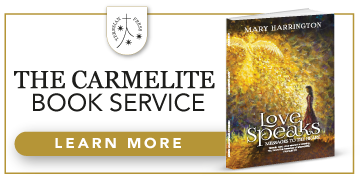Sorry, no records were found. Please adjust your search criteria and try again.
Sorry, unable to load the Maps API.
The Governing Body of Mater Ecclesiae College is pleased to announce that, with a decree dated 28th October 2024, the Holy See has confirmed the appointment of Rev. Dr. Paul McPartlan as the Rector of Mater Ecclesiae College for a period of five years.
Mater Ecclesiae College welcomes this appointment and offers Mgr. McPartlan prayers and support. There will be a period of transition and Mgr. McPartlan will fully take up his work as Rector in January 2025.
The college sincerely thanks Mgr. Roderick Strange for his efforts and dedication during his period as the first Rector of Mater Ecclesiae College.
The Chancellor, Cardinal Vincent Nichols said: “I am grateful to Mgr. Paul McPartlan for accepting the challenge of leading Mater Ecclesiae College, with its distinguished history, into the next stage of development. In partnership with St Mary’s University and Allen Hall Seminary, the College will expand its offers of courses in ecclesiastical studies leading to the awarding of higher Pontifical Degrees.
“We are proud of Mater Ecclesiae College and the opportunities it offers to women and men, lay and clerical, to study together the great truths of our faith.”
Professor Anthony McClaran, Vice-Chancellor of St. Mary’s University, said: “On behalf of St Mary’s University, I warmly welcome Mgr. Dr Paul McPartlan as the second Rector of Mater Ecclesiae College and as a professor in St Mary’s School of Theology. Dr McPartlan brings great qualities of scholarship, leadership and higher education experience to both posts and we look forward to working with him to advance the mission of the College in its service to the Church in this country.”
Mgr. Paul McPartlan commented: “I’m delighted and honoured to be appointed as Rector of Mater Ecclesiae College. I look forward to working with colleagues to achieve the College’s great potential, building on the strong foundations already laid.”
Mgr. Paul McPartlan is a priest of the diocese of Westminster and Professor Emeritus of Systematic Theology and Ecumenism at The Catholic University of America. He was born and raised in Newcastle upon Tyne. After reading Mathematics at Cambridge and studying philosophy and theology in Rome, he gained his doctorate at Oxford in 1990.
He served for several years in a London parish, and then held a research fellowship at St Edmund’s College, Cambridge. He taught theology at Heythrop College in the University of London (1995-2005) and at Catholic University in Washington (2005-2023), where he held the Carl J. Peter Chair of Systematic Theology and Ecumenism, and also served as Acting Dean of the School of Theology and Religious Studies in 2014-15.
He was a member of the International Theological Commission for ten years (2004-2014), and a member of the international Methodist-Roman Catholic theological dialogue for ten years (2002-2012). He has taken part in international Anglican-Roman Catholic dialogue, also. Since 2005, he has been a member of the international Roman Catholic-Orthodox theological dialogue.
He is the author of The Eucharist Makes the Church: Henri de Lubac and John Zizioulas in Dialogue (1993, 2006), Sacrament of Salvation: An Introduction to Eucharistic Ecclesiology (1995), A Service of Love: Papal Primacy, the Eucharist, and Church Unity (2016), and over 100 articles and book chapters on ecclesiology and ecumenism. He edited John Zizioulas, Communion and Otherness (2006), and co-edited The Oxford Handbook of Ecumenical Studies (2021).
Mater Ecclesiae College
Mater Ecclesiae College is called to make a rich contribution to the intellectual and spiritual life of the Church in this country. It was established in 2019 as the continuation of the Bellarmine Institute, the Pontifical Faculty of Theology in relationship with Heythrop College, dating back to the House of Studies of the Society of Jesus in Louvain in 1614.
Its programmes of study enable men and women, lay and clerical, to study together to deepen their understanding of the mysteries of faith in Jesus Christ and contribute to the Church’s missionary outreach by communicating these truths. The College aims to provide courses leading to ecclesiastical degrees at the Baccalaureate, Licentiate, and Doctoral levels, in both Theology and Philosophy.





























